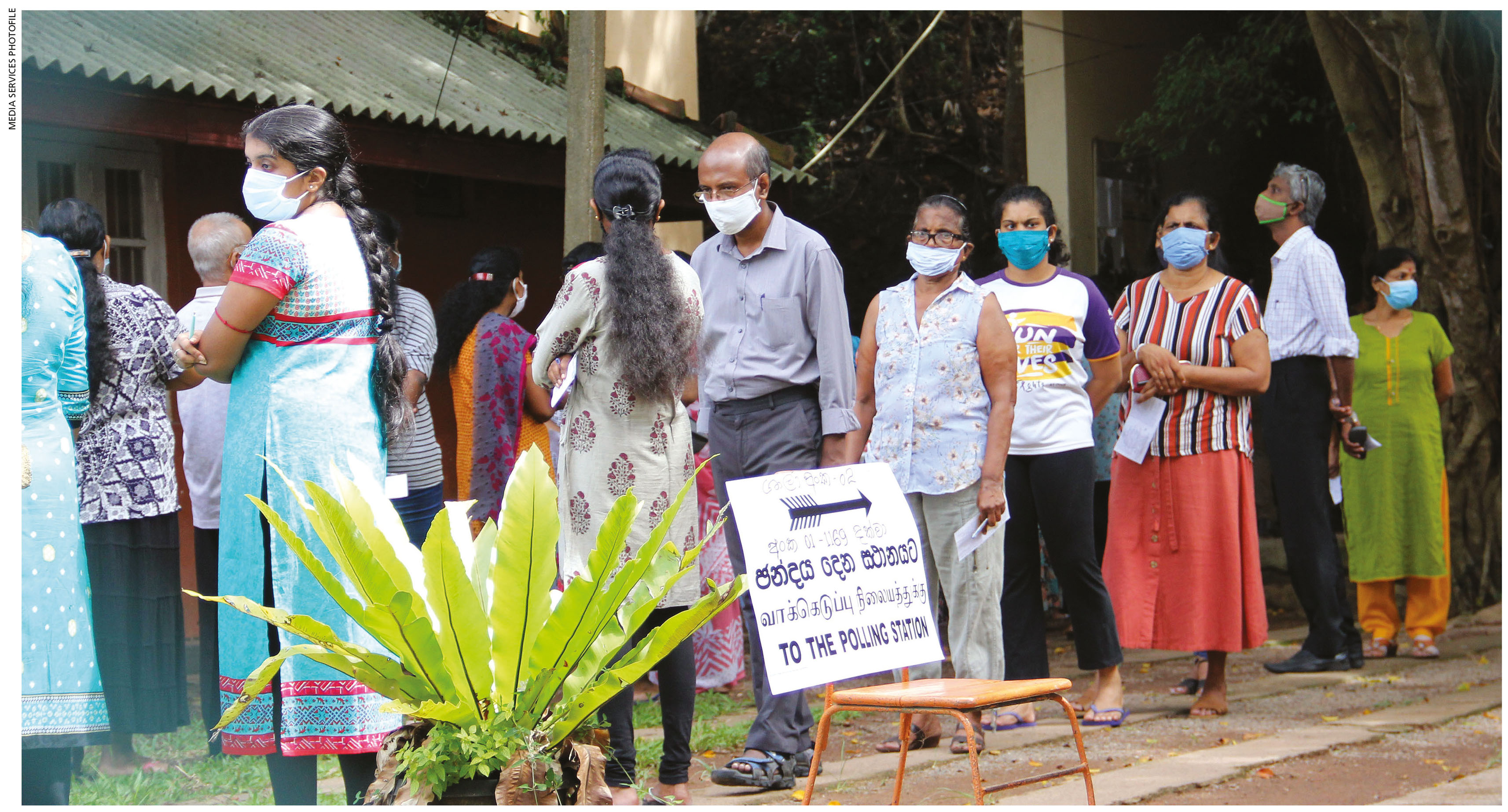STATE OF THE NATION
SHARP VECTOR: STRENGTH TO SOLIDARITY
Wijith DeChickera wonders if the first order of the new administration would be to consolidate political power or work towards a larger mandate
The people’s appetite for more agency and less alienation in their own governance was tasted by the high electoral turnout at the recent election. Signs of disaffection were long seen with a local government landslide in 2018.
In 2020, there was a sense among the masked and sanitized 70 percent who trudged to vote that this was a crossroads for a country quarantining COVID-19. They voted with their feet, as well as hearts and minds.
The result underscored how desirous of strength and stability for our nation state the larger polity is at this time.
It is a climax in the decline and fall of liberal democracy in favour of an increasingly monolithic political machine. A bouquet to the studied professionalism of leadership, which has embraced the barometer of a majority of the people whilst still pursuing an ambitious national vision.
A brickbat: the calibre of some representatives elected demonstrates that many voters are gluttons for punishment. Who with any sense but that of gourmands relishing raw power unrefined by civics would send a convicted murderer among other undesirables such as charlatans, chauvinists and chilli powder throwers to the house?
This while ensuring that some sea-green incorruptible types would stay at home… of course, a few big league rogues also lost out – and that’s a welcome ‘au revoir’ to fiscal impunity.
It’s clear that naive voters cannot ‘COPE’ (pun intended) with the reality that power tends to corrupt. That absolute power corrupts absolutely. And great men are almost always bad men. Also, that under paternalism, women (comprising 52 percent at large – yet, so few in the legislature) are deprived of a dedicated ministry let alone adequate parliamentary representation despite being key drivers of the economy.
There is no greater heresy than that high office sanctifies its holders. We are yet to see a more equitable gender distribution in a still patriarchal dispensation for all its desire for progress.
POWER BALANCE For better or worse, government in the next five years is in a stronger position than any regime in decades. It’s not a coalition requiring unsavoury horse trading although some jockeying remains to be done if constitutional tinkering is to take precedence over civics and governance.
The practitioners of ‘good governance’ have been sent packing – save one! Some electors (and the powers themselves) have a grim sense of humour.
ROUGH JUSTICE There was clearly a keenness that those who had betrayed the national interest – through pursuing selfish ambition or neglecting public safety and security – should be held accountable…at least through the ballot if not by trial at bar.
As there are no permanent enemies in politics, friends in high places united former partners in politics in the pursuit of a new nationalism. It is based not so much on social justice but a singular vision of nationhood. We can only trust in such a programme to be pluralistic and inclusive. Such a detrimental lack can only lead to Sri Lanka’s regression in the longer run.
POLICY DIRECTION Now that campaign trails are dust beneath the wheels of a nationalistic chariot, it remains to be seen whether the economy will undermine the juggernaut of a strong government in a way that ethnic sensitivities could never do.
It is one thing to scapegoat certain individuals or representative communities but quite another to separate the chaff of chauvinism from the wheat of adroit fiscal management. Government has to deliver economic recovery and stability, over and above its acolytes appealing to security for a sole ethnicity. Governance trumps electioneering.
DOMINANT IDEOLOGY A citizenry endorsing – even encouraging – of ‘racial profiling’ as campaign strategy may well prove to be less accommodating at the lack of bread at a low cost to family finances.
What international agency will underwrite the stability of our state coffers will determine how a people fed on promises will respond to castles in the air if undelivered in the short term. The Port City alone won’t wash in the Dry Zone.
To serve the people satisfactorily while servicing sovereign bonds strategically and in a timely manner to forestall further downgrading of the country outlook remains this government’s greatest challenge. We can take no measure of comfort in a cabinet with many of ‘the usual suspects’ where discipline will be hampered by impunity over chequered track records.
Another pressing issue is how our new governors see the state’s role in national development. While reconciliation and transitional justice are mottos of a bygone era, the maxims of nationalistic consolidation and trans-national development may dominate the present ethos.
FUTURE TRAJECTORY To move forward, one must look back. Campaigning, the vector of a machine militarised to managing coronavirus changed its clarion from ‘powerful prime minister under technocratic president’ to ‘two-thirds majority for constitutional reform.’
If the first undertaking of this administration is to recalibrate the power balance with an eye on present personal needs over future national stability, it must shelve such ambitions.







Leave a comment